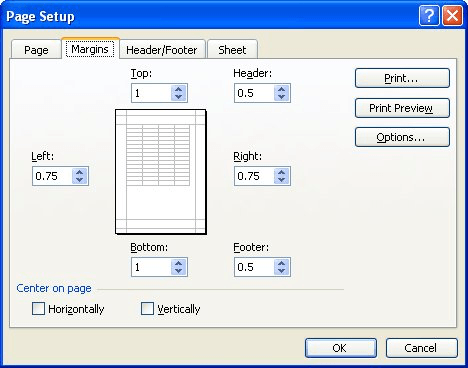

- #HOW TO ADJUST MARGINS IN PAGES ON A TRIFOLD ISO#
- #HOW TO ADJUST MARGINS IN PAGES ON A TRIFOLD SERIES#
- #HOW TO ADJUST MARGINS IN PAGES ON A TRIFOLD FREE#
Note: There is also a B series and a C series, but they’ll come up less often. For easy reference here they all are:Ī4: 210mm x 297mm (roughly equivalent to North American letter) Thus, as long as you know the conventionally defined dimensions of A0 (841mm x 1189mm), you should be able to figure out the dimensions of A1: 594 (1/2 of 1189) x 841. It makes more sense when you look at it graphically: Each is defined by the aspect ratio of 1:1.4142 (the square root of two), and the increments proceed by bisection: halving the length of the former to obtain the width of the latter, with the width of the former then becoming the latter’s length. It starts with A0 (the largest) and generally proceeds to A7 (the smallest, though in theory the progression could continue ad infinitum).
#HOW TO ADJUST MARGINS IN PAGES ON A TRIFOLD ISO#
The ISO system is rooted in simple mathematical proportions. Most often used as a half fold with two large sheets, like a menu.ġ1 x 25.5: We’re not sure if this one has a proper name, but as a tri-fold it results in three letter sized pages. Used for tri-fold designs that want a little more room. We’ll start with the North American system, which is just a matter of straightforward memorization:
#HOW TO ADJUST MARGINS IN PAGES ON A TRIFOLD FREE#
Quick, what’s the relationship between A3, C5 and tabloid paper sizes? You would be forgiven for not knowing the answer off the top of your head, and you can feel free to blame North America, which has maintained its own system even as most of the world has switched to an ISO (International Organization for Standardization) standard.īut if these terms are completely unfamiliar to you, then that is something to remedy. This site is protected by reCAPTCHA and the Google Privacy Policy and Google Terms of Service apply. Paper sizesīy completing this form, you agree to our Terms of Service and Privacy Policy. If you’re one of those people, never fear! In this post we’ll run through the basic terms and protocols you need to know to excel in folded brochure design. This exact question came up in our community forum not long ago, and before one of our seasoned experts arrived to supply an answer (which we will go over below), it seemed to have a lot of people stumped. If a client instructed you to create a brochure that is “Tri-fold (6 sides) A4 (Folds to A5),” would you know what that means?

Here’s a quiz to see how solid your folded brochure knowledge is. And if you can’t respond to a client’s requests in this department, then you are going to come off as an amateur. As long as there are trade shows and people have mailboxes, the brochure will have a ready audience. That’s a problem, because while folded brochures may be less prevalent than they once were, they are not going away entirely. As a result, many up-and-coming designers today aren’t learning the basic terms, protocols and skills for that type of design.




 0 kommentar(er)
0 kommentar(er)
